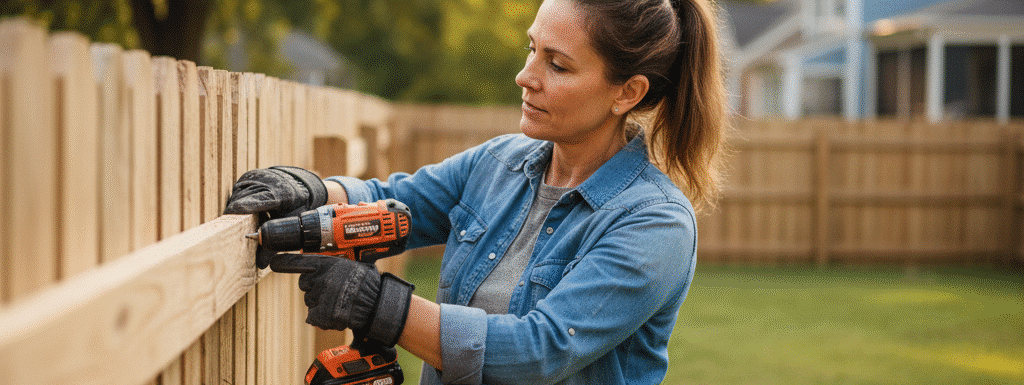Planning a new fence for your Charlotte property? Before you even pick up the phone to call a contractor, it’s helpful to have a rough estimate of your project’s cost. While a professional contractor will provide the most accurate quote, doing some preliminary homework empowers you to understand the process and budget effectively. Here’s how to estimate your fence project before calling a contractor:
1. Measure the Perimeter
Accurate measurements are the foundation of your estimate. Use a measuring tape to determine the length of the area you want to fence. Walk the property line and record the total length in feet. This measurement will be crucial for calculating the amount of fencing material you’ll need.
2. Choose Your Fence Material
The material you choose significantly impacts the overall cost. Popular options include:
- Wood: A classic choice, offering privacy and affordability, but requires more maintenance.
- Vinyl: Durable and low-maintenance, but generally more expensive upfront.
- Aluminum: A good option for decorative fences and pool enclosures, offering longevity and rust resistance.
- Chain Link: The most cost-effective option, providing security without obstructing views.
Research the average price per linear foot for your desired material. Home improvement stores and online retailers are good resources.
3. Factor in Labor Costs
While DIY installation is an option, professional installation ensures proper construction and longevity. Labor costs typically range from $5 to $15 per linear foot, depending on the material, complexity of the project, and the contractor’s rates. Consider the terrain of your yard – sloped areas or rocky soil may increase labor costs.
4. Account for Gates and Hardware
Don’t forget to include the cost of gates, posts, hinges, latches, and other necessary hardware. Determine the number and size of gates you’ll need and factor in the cost of each. Hardware costs can add a significant percentage to your overall budget.
5. Consider Removal of Existing Fence
If you’re replacing an existing fence, you’ll need to factor in the cost of removal and disposal. This might involve renting a dumpster or hiring a separate removal service.
6. Get a Professional Quote
After you’ve gathered your measurements, material choices, and considered labor costs, you’ll have a much better understanding of the potential cost of your fence project. Now it’s time to get a professional quote. Get a Free Fence Quote from Trusted Contractors and compare prices from several local contractors in Charlotte and Central North Carolina to ensure you’re getting the best value for your money.

